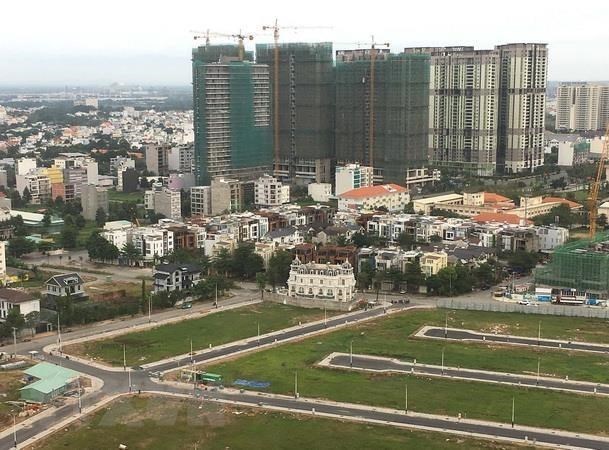 |
|
Planning reforms to open up easier access for overseas businesses eyeing Vietnamese market. |
In early May, the Government Office announced the issuance of Decree No.37/2019/ND-CP guiding the implementation of the Law on Planning.
The decree has attracted much attention among businesses and investors, especially those involved in the hundreds of projects that have had a pending status for several years because of a lack of detailed planning guidance.
According to the EuroCham Legal Sector Committee, Decree 37 creates a unified, formal, and reliable information channel that allows updating, use of, providing, and managing planning information in a clear and transparent way to help overseas investors monitor planning and reduce the cost burden when researching investment decisions.
The new planning with rules for the 2021-2030 period is a new and tough issue in Vietnam, with the decree and the Law on Planning to have a significant impact on the Vietnamese business environment, and featuring many positive changes.
As shown in the decree, the most important new change in the Law on Planning is the fresh approach in directing planning towards market orientation.
Accordingly, the planning of product development is removed, while creating a larger development space for cities and provinces, as well as businesses.
This mean that the planning will be based on geographical zoning instead of the previous quota system.
Thus, the government will provide far larger space for market dynamics to arrange projects as there will be no specific quotas for the number of golf courses to be built in each region, leaving it up to investors.
In this light, the government will provide orientations and recommendations for the development of territorial planning and create development space by developing infrastructure and protecting natural resources and the environment.
Meanwhile, cities, provinces, and businesses will have the competence to issue planning for the development of certain products to ensure efficiency and to meet their development demands.
It was said that the reform of the planning system with the aim of market orientation will give businesses from the EU in particular, as well as other international backers, equal opportunities in accessing land and other economic resources.
Another highlight, an e-portal will be built for the national database on planning to operate within Vietnam’s e-government ecosystem.
This will connect ministries and provincial and municipal people’s committees.
In spite of these improvements, Decree 37 still has some shortcomings related to conducting, time limitation, and detailed content requirements for planning.
In particular, the Law on Planning names the national master plan as a basis for establishing national maritime spatial planning, national land use planning, regional and provincial planning, and urban planning.
However, the system stipulated in the Law on Planning is different from the planning system developed for the period of 2011-2020. Some plans have never been prepared such as national master plans or national marine spatial planning.
Thus, there is currently no adequate zoning and orientation for regional planning. If the regional and provincial planning is made after the national master plan is approved, it may not guarantee the required progress for planning for the 2021-2030 period.
Hironobu Kitagawa, chief representative of the Japan External Trade Organization in Hanoi, told VIR that he hopes the decree will help Japanese companies implement investment more smoothly, as Japanese investors are facing difficulties related to planning issues in some Vietnamese cities and provinces.
“Individuals working at economic zones were entitled to a 50 per cent reduction in personal income tax,” Kitagawa said.
“However, this incentive was lifted by Decree No.82/2018/ND-CP last July without advance notice, and this change has impacted our companies’ investment plans and business conditions. Through this experience, we hope that the Vietnamese government will not withdraw any predetermined incentive policies and manage to keep a reliable and stable investment climate for foreign investors.”
Along with Japanese investors, other groups from the EU, South Korea, and more are currently facing the same situation.
They are expecting possible adjustments to be made in the near future to further facilitate their investment plans. VIR

Foreign investors to join restructuring of Vietnamese banking system
Foreign banks have been expressing eagerness to jump on the mergers and acquisitions (M&A) bandwagon in the banking sector.

Vietnam attractive to foreign investors amid trade war
Mr. Chua Hak Bin, Senior Economist at Maybank Kim Eng, tells how Vietnam is the biggest beneficiary in investment shifts from China as trade war with US continues.

Vietnam leverages foreign investors in SOE privatization
The State Bank of Vietnam has issued new regulations to further facilitate foreign investors in taking part in the privatization and divestment of State-owned enterprises (SOEs) in the country.
 The long-awaited new decree guiding to the Law on Planning is expected to open a wider business development space for businesses to venture further into projects in Vietnam in the months ahead.
The long-awaited new decree guiding to the Law on Planning is expected to open a wider business development space for businesses to venture further into projects in Vietnam in the months ahead.